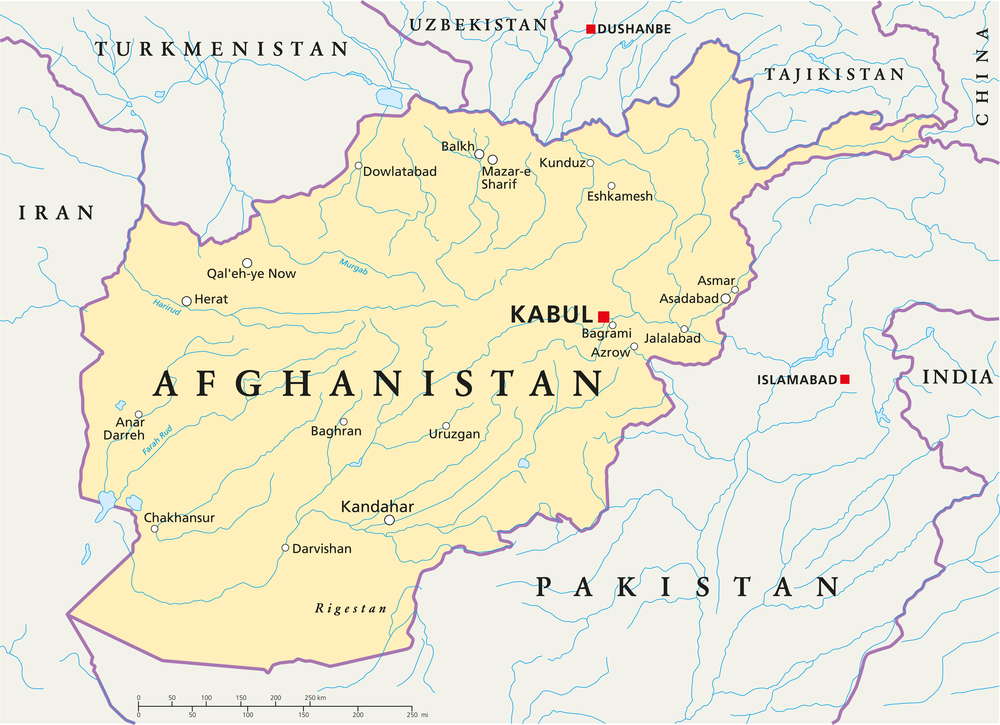The Foreign Ministry of the Taliban movement (which is currently banned in Russia as a terrorist organization), which controls Afghanistan, has welcomed Russia’s declared intention to build bilateral relations.
Abdul Qahar Balkhi, spokesperson for the Taliban Foreign Ministry, said that “The Ministry of Foreign Affairs of the Islamic Emirate of Afghanistan welcomes comments by the leadership of the Russian Federation, the Minister of Foreign Affairs and other officials expressing their political determination to broaden relations with the Islamic Emirate of Afghanistan. Following decades of conflict and instability in the country, the past three years have demonstrated that Afghanistan currently has a responsible government that has created an opportune environment for all regional countries to work towards further developing positive relations while taking into consideration bilateral priorities. Significant progress has already been made with numerous countries.”
The Taliban took control of Afghanistan virtually without a fight in August 2021, after the United States, its allies, and a local government it supported left the country in a hurry after staying there for 20 years. However, no countries, including Russia have recognised the Taliban as a legitimate Government, with recognition mainly being dependent on the Taliban permitting other Afghani political factions to contest government positions. About 45% of Afghani’s are not affiliated with the Taliban. However, some countries do maintain cordial relations with the Taliban, including Russia, China, and Iran.

Russian President Vladimir Putin said on Tuesday (May 29) that the Taliban de facto govern Afghanistan now, and relations with them should be built based upon realities. Russian Foreign Minister Sergei Lavrov said on Monday that the real situation in Afghanistan governed by the Taliban should be taken into consideration, as that country is of interest to Russia. The United States has said it does not plan to recognize the Taliban as Afghanistan’s legal government.
Recognition would assist in legitimate bilateral agreements being put in place between Afghanistan and any country that recognises the Taliban as its legitimate government. That can extent to trade development as well as other development financing projects to help the country recover after decades of war. Afghanistan is landlocked and has borders with Pakistan to the east and south, Iran to the west, Turkmenistan to the northwest, Uzbekistan to the north, Tajikistan to the northeast, and China to the northeast and east.
At present, the Taliban government is especially interested in exporting minerals and fruits, which the current government wishes to export to Russia while importing Russian gas, oil, and wheat. Before the Taliban takeover in 2021, Afghanistan bought oil products from Russia in the amount of 600-800 thousand tons per year. That looks set to continue and increase.
In 2022 Russia and Afghanistan approved a deal on the supply of fuel and grain, under which, Russia will supplid about a million tons of gasoline, a million tons of diesel fuel, 500,000 tons of liquefied natural gas, and 2 million tons of wheat per year. The agreement is to remain in effect for an indefinite period.
In early 2022 Afghan media sources claimed that Russian entrepreneurs were contemplating investing in the oil and gas industries of Afghanistan, which included establishing oil and natural gas refineries, as well as facilities for the production of LNG. Establishing a cement production company was also discussed between the two sides.
The trade and investment position between Russia and Afghanistan therefore remains somewhat ambiguous, with the main efforts being put in by Russia relating to Afghanistan’s internal, and regional security. Yet progress is slowly being made. The country has joined China’s Belt & Road Initiative with the potential for Chinese and possibly joint Russian-built infrastructure projects. Rail connectivity north-south from Uzbekistan-Afghanistan-Pakistan to the Persian Gulf is at advanced stages of discussion, while a proposed West-East link from Iran via Afghanistan to Pakistan is also being considered. China has tentatively agreed to assist with the funding of both these projects. Iran, Turkmenistan, and Pakistan (the latter with Chinese investment) are building Free Trade Zones and Industrial Parks on their borders with Afghanistan.
Kabul has also made an official request to join the BRICS grouping although accession would seem some time away. Progress, although slow and minimal, is however being made, while the potential for joint Russian-Chinese projects to minimize the investment risk in Afghanistan appears likely to emerge over time.
Should Moscow recognise the Taliban, a Chinese decision to do the same may be in place shortly afterwards allowing both sides to boost security and trade in order to promote regional peace.
Further Reading
Russia-Afghanistan 2024 Trade & Development
Russia’s trade and development with Afghanistan is extensively covered in our 2024 Russia’s Pivot To Asia Guide, which is a complimentary download and can be accessed in English here and Russian here.

 Русский
Русский













